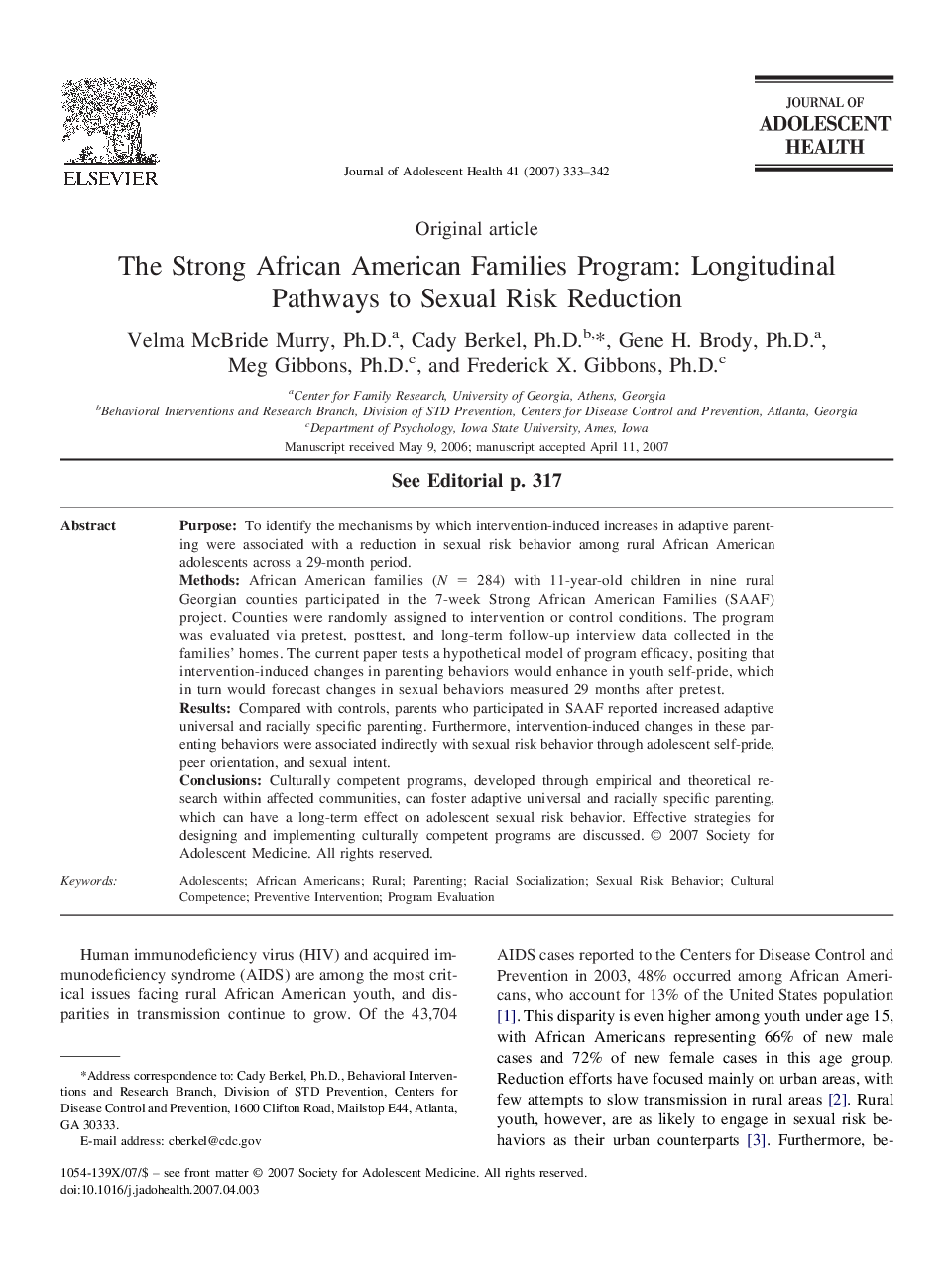| Article ID | Journal | Published Year | Pages | File Type |
|---|---|---|---|---|
| 1081063 | Journal of Adolescent Health | 2007 | 10 Pages |
PurposeTo identify the mechanisms by which intervention-induced increases in adaptive parenting were associated with a reduction in sexual risk behavior among rural African American adolescents across a 29-month period.MethodsAfrican American families (N = 284) with 11-year-old children in nine rural Georgian counties participated in the 7-week Strong African American Families (SAAF) project. Counties were randomly assigned to intervention or control conditions. The program was evaluated via pretest, posttest, and long-term follow-up interview data collected in the families’ homes. The current paper tests a hypothetical model of program efficacy, positing that intervention-induced changes in parenting behaviors would enhance in youth self-pride, which in turn would forecast changes in sexual behaviors measured 29 months after pretest.ResultsCompared with controls, parents who participated in SAAF reported increased adaptive universal and racially specific parenting. Furthermore, intervention-induced changes in these parenting behaviors were associated indirectly with sexual risk behavior through adolescent self-pride, peer orientation, and sexual intent.ConclusionsCulturally competent programs, developed through empirical and theoretical research within affected communities, can foster adaptive universal and racially specific parenting, which can have a long-term effect on adolescent sexual risk behavior. Effective strategies for designing and implementing culturally competent programs are discussed.
